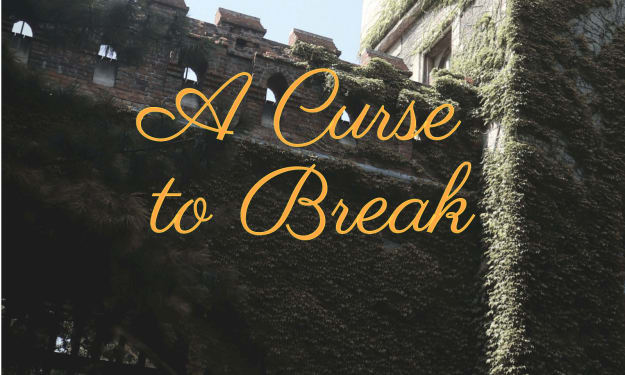
The Lost House was an aged tenement building which loomed above a street with no name in a dilapidated area of the city.
The elders of the drinking dens often described the place as ‘older than the hills and older than the sky’.
If you wanted anonymity this was the place to come, passers-by were few and far between.
It was populated by the vulnerable, eccentric, fugitive, the vanished and disappeared.
Howe was an intelligent man, in his humble opinion, a real genius, who had decided to drop out of the dystopian world of the 21st century and live without the accoutrements that society dictated that one should have.
He craved obscurity and found it, here.
Today, he lurked in the shadows of his shabbily curtained room, knocking over one of his many piles of books.
Books of different shapes, sizes and genres filled with words which had enlivened him from an early age, had sustained him through times good and bad.
Books were his balm, his panacea, his comfort and succour in his transitory life.
He particularly favoured stories of what he called ‘Urban Horror’, this was, he regularly told himself in a drunken monologue to the silence, ‘not something that involved ghosts, goblins or vampires, but merely human beings eking out an existence in the darkness of dystopian cities until the intervention of something horrible and mysterious ‘.
Most of the time, he felt as if he were inhabiting such a story, a character created at the keyboard of a writer drunk on words and alcohol and overwhelmed by bizarre ideation.
On the floor, dust provided a greyish coating over the general clutter-empty bottles and cans competing for space with various supernatural tomes, which accumulated over the stained and balding remains of carpet.
He hit the drink often, dreaming each night and sometimes during the day, of being a writer, someone like the plethora of writers he feted and emulated, basically wanted to be and to be honest believed he was.
His writings, notes scrawled out in incoherent longhand, collected in a selection of plastic supermarket bags crammed with faded musty paper and half -baked ideas lay on one side of the room.
He would eventually get around to collating them and presenting them in a loose approximation of a book- somewhere in his alcohol- befuddled brain he nurtured this thought for future use.
On the battered coffee table, his working area, if it could be accurately called that, his attempted novel lay, also covered in a layer of dust.
‘Thick Darkness Broodeth Yet’ was his magnum opus, the one he regularly worked on.
The title, taken from a hymn recalled from his childhood recorded the protagonist’s struggle with the demands of a Christian life in the 1970s, when Thatcher’s regime and punk rock had kicked the world in.
He often wondered if this effort was too autobiographical to be fiction, but you can only write what you know as he had been told time and time again.
His room was squalid and reeked of neglect; the landlord had long since stopped bothering with Howe, and had left him to it, whatever ‘it’ was. Howe had paid up front for a couple of years when he came to the place, so the landlord had a good few grand to play with, which maybe accounted for his absence.
Howe had wanted to disappear when he checked into this place and his wish had been granted, all mail addressed to the Lost House was returned to sender marked ‘No Answer’, ‘Not Known at This Address’ and other such apposite phrases.
The female occupant of the room below Howe’s often stumbled in late at night.
He was often awakened by her incoherent babbling, perhaps some incantations of a lost liturgy from a forgotten religion sometimes drink or drug fuelled chatter, sometimes singing.
She played her music at high volume, but this was not the pounding dance music of the potential recipient of an ASBO, it was a plaintive sound of what approximated Chet Baker’s ‘Let’s Get Lost’, in a jazz-like phrasing, bawled over the music she played.
He never complained about her, had never set eyes on her, neither had they encountered one another on the landing. Her movements down below were always late at night, as if she was out drinking, clubbing or out for a smoke. Oddly enough, he had never heard the door banging as she left or returned. Maybe she was just careful in her handling of doors, considerate to others.
Perhaps she was a figment of his imagination, a non -existent being, a spectral entity or poltergeist.
Perhaps she wanted to get lost as in the words of the song, but in the arms of Oblivion rather those of a potential lover.
Howe never found out, for the following morning, he was woken by a loud rapping on his door; quoth the Raven ‘Nevermore’, his half-drunk mind quoted Poe to him.
A cadaverous young man of ‘drug user appearance’ slouched at Howe’s doorway, rasping through his straggly nicotine stained goatee that ‘Amanda’ had evidently disappeared.
‘She’s no there onymair’, he said, having advised Howe that his name was Tommy, and he lived in the flat opposite Amanda. ‘Ah hinna seen her fur days’ mate’.
Howe struggled from his chair to the door and followed the man down the stairs.
Amanda’s flat looked far from what Howe had expected. It was neat and tidy, everything placed in the style of a hotel room which has recently been prepared for the latest guests.
There was no real evidence of anyone having been there, no unpleasant smells, stained carpets, trace of recent occupancy- although one wall bore a multitude of words scrawled in marker pen, the lyrics of Let’s Get Lost, the song by Chet Baker that she had often sung in her room. The lights flickered at that point though nothing was plugged in the wall the words disappeared letter by letter as Howe and Tommy looked on, soon the wallpaper was returned to pristine condition and the room looked stunning, as if self -regenerated. Tommy who had experienced some altered states and drug fuelled nightmares in the recent past, wondered what the hell was going on, but dismissed it as after effects of his habit.
Howe’s mind, though a tad hungover, toyed with the idea that the room might be alive, something like what he’d read in a couple of stories over the years, one by an obscure Scottish writer, the other by the US feminist author Charlotte Perkins Gilman.
He would scrawl his one out in one of his Biros, and then maybe nick a laptop from one of the other occupants of the Lost House.
The story would commence as follows: -The Lost House was an aged tenement building which loomed above a street with no name in a dilapidated area of the city.
The elders of the drinking dens often described the place as ‘older than the hills and older than the sky’.
About the Creator
Shazee Tahir
Storyteller | Fantasy & Self-Love Writer | WIP: Action Superhero Series
Stickers, Support & More






Comments
There are no comments for this story
Be the first to respond and start the conversation.